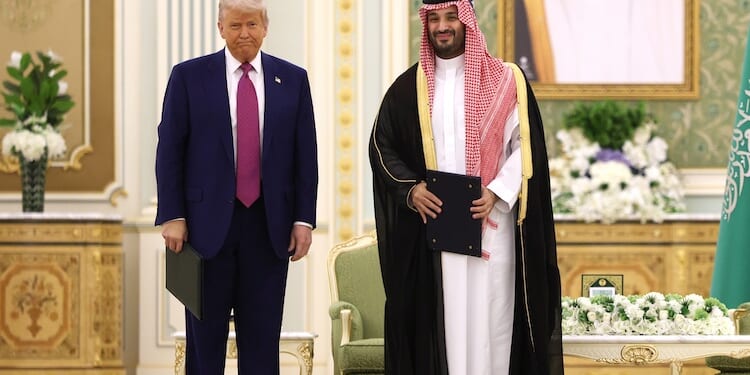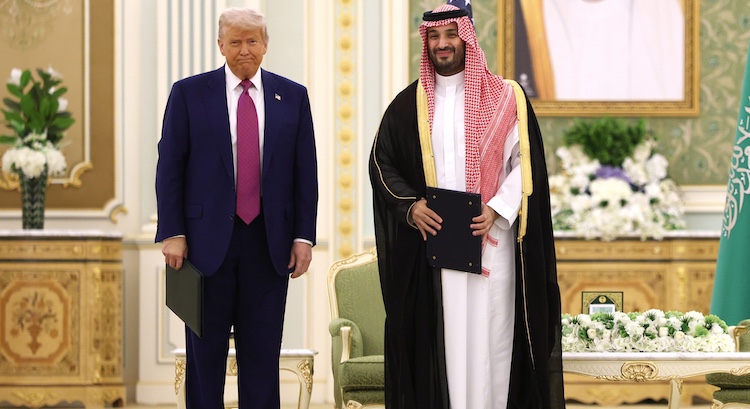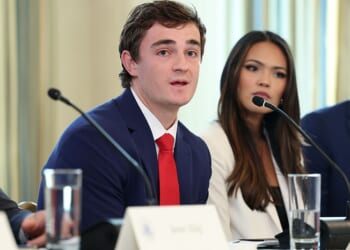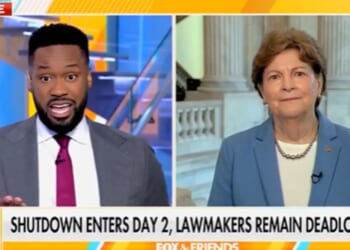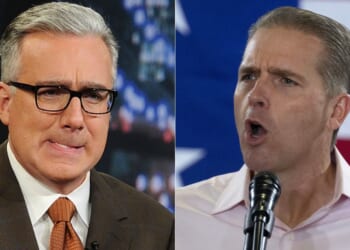President Trump’s pursuit of a legacy as a “historic peacemaker” has already brought some benefit to the Middle East, but success can be addictive. Trump also prefers to mark visits from foreign leaders by having something to announce. Those two facts have combined to make next week’s visit by Saudi Crown Prince Mohamed bin Salman an opportunity for both.
To be sure, bin Salman’s visit is already significant. His last visit was in 2017. The following year, regime critic Jamal Khashoggi was brutally murdered by government agents in a Saudi consulate in Istanbul. MBS hasn’t been back since.
There is also the matter of what Trump and bin Salman want to be able to announce at the visit: a defense agreement of some sort, likely including a hefty weapons package. The Saudis are also reportedly seeking a security guarantee to match the one Qatar received for its own role in facilitating the president’s Gaza cease-fire deal. The preceding months have seen a revolving door of Saudi officials to and from Washington to lay the groundwork for any deal.
But there is another deal that looms above it all: a prospective normalization with Israel.
That one is way off on the horizon, but with Trump term-limited and in his last years as president, every discussion and debate between Washington and Riyadh must be seen in light of the end goal, which is a Trump-facilitated recognition deal between Israel and Saudi Arabia.
To drive the point home, Axios reports today: “President Trump told Saudi Crown Prince Mohammed bin Salman (MBS) in a phone call last month that, with the Gaza war ending, he expects Saudi Arabia to move toward normalization with Israel, two U.S. officials told Axios.”
This story was clearly triggered by the White House, who’d been holding on to that information since the phone call last month and waiting for the appropriate moment to leak it. That moment has arrived.
That the administration wants everyone to know that the president wants a Saudi normalization deal means the White House sees a need to keep the pressure on Riyadh. The president wants to get questions about that normalization deal while bin Salman is at the White House.
Trump is comfortable in such situations and in fact likes to test others by putting them under the same hot lights to see how they’ll react. Trump also knows that the more such a deal is spoken about in public, in front of the press, by political leaders, the more it will take on an air of inevitability and normalcy—in a way, it’s how normalization gets normalized.
Bin Salman also surely knows how badly Trump and Israeli Prime Minister Benjamin Netanyahu want to be the ones to sign such a deal, since they’re nearing the end of their careers and bin Salman, at the preposterously young age of 40, has his career ahead of him.
The elephant in the room is Palestinian statehood. Hamas launched the October 7 war in part to derail Israel-Saudi normalization, but the attacks also represented a major setback for Palestinian statehood alongside Israel, which Hamas opposes. Hamas’s mere survival in Gaza, meanwhile, is an existential threat to Palestinian national aspirations. The terror group is skilled at playing spoiler.
The path to Palestinian statehood, therefore, can only be paved with Hamas’s total defeat. Trump is on board with that, as are the Israelis. But the unanswered question remains: Does bin Salman have the stomach for taking on the Muslim Brotherhood so definitively? The problem is not power: Iran and its proxies have been sidelined, and bin Salman has much more influence with the al-Sharaa regime that has replaced the Assad family in Damascus.
What bin Salman needs is to know this thing with the U.S. is rock solid. The Obama administration’s attempt to empower Iran at the Saudis’ expense was a wake-up call for everybody, most of all Riyadh. Trump has proved repeatedly that while he’d prefer a diplomatic solution with Iran, he will not be held hostage by Tehran. Joe Biden initially came into office talking about undoing the progress with the Sunni alliance in retribution for the killing of Khashoggi. The post-Trump right has also sent signals that it will be less comfortable with U.S. security guarantees than Trump is.
Bin Salman will get his defense pact next week. But his meetings with Trump will be largely about plotting a possible normalization endgame. And, of course, that Nobel Peace Prize the president has had his eye on.

